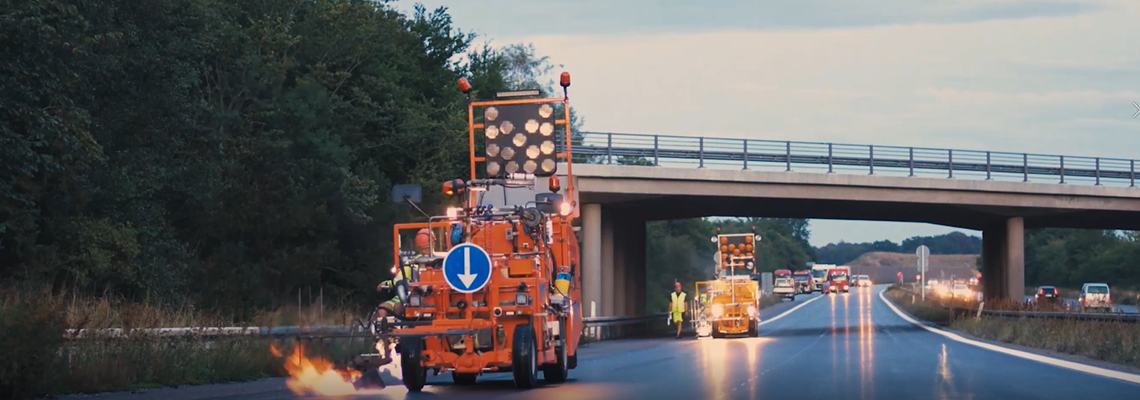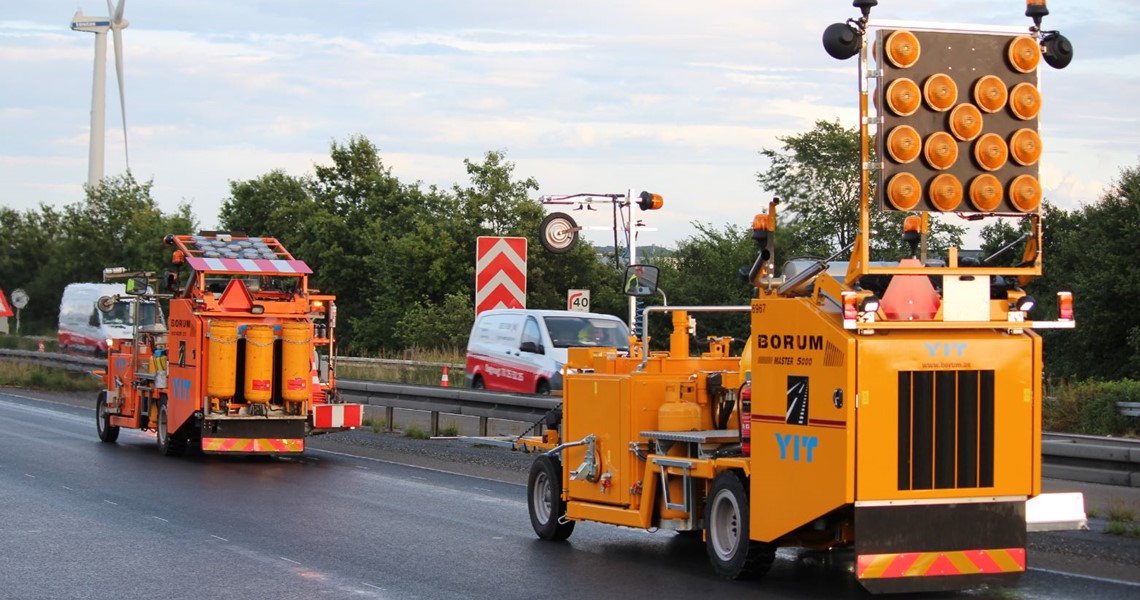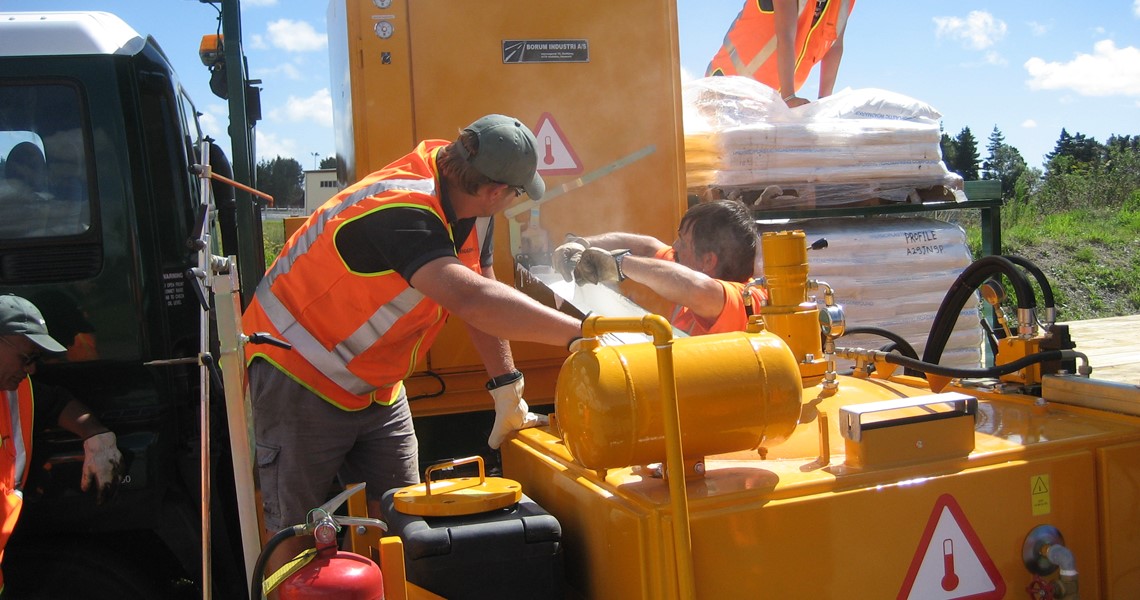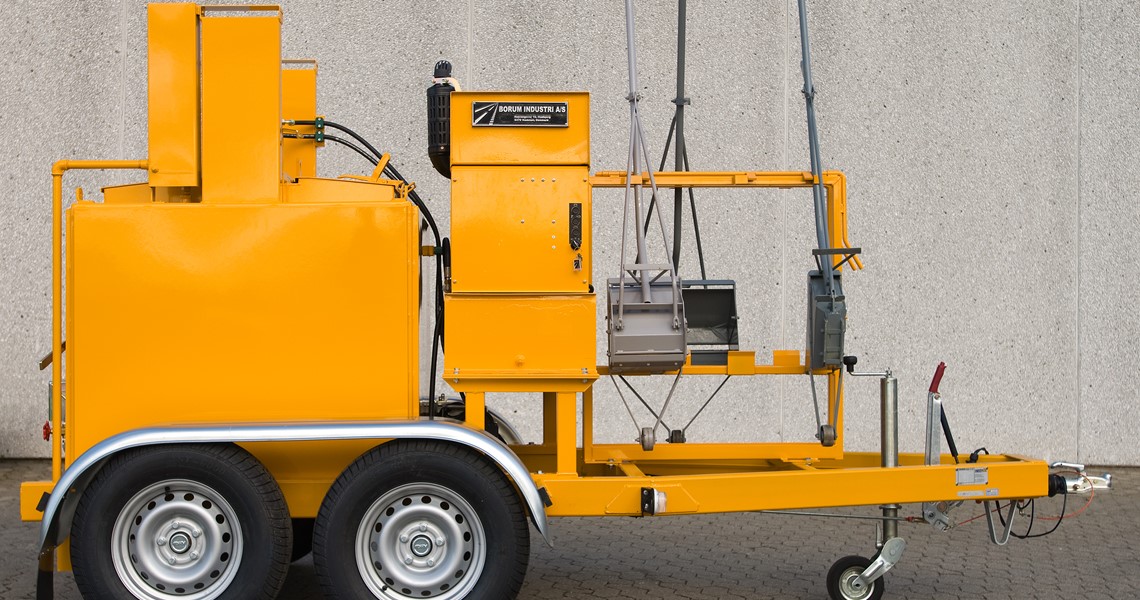09/01/2020

YIT is an international group working with road construction as for e.g. asphalt application and road marking. YIT's roots go back to the 1910s when the company opened its first branch in Finland and was operating in the bitumen and concrete products business. In its 100+ year history, YIT has seen many changes in the journey to becoming the company it is today.
From one Danish line marking professional to another
YIT's Danish branch, YIT Danmark, acquired its first Borum line marking machine for thermoplastic extrusion and application of profiled markings in 2013. Since then the contractor has increased its fleet with two additional Borum machines with the same marking equipment. In addition, YIT Danmark also works with Borum preheaters for melting thermoplastic, trailers for manual marking and hand screed boxes for manual extrusion.
"YIT Danmark has always bought equipment from Borum... all of our machines are from Borum. My employees say it's the best road marking machine they can do road marking with."
Michael Pihl, Contract Manager at YIT Danmark
As in other parts of the world, some of the biggest challenges in marking on Danish roads are the changing weather and tight schedules. "We are the last people on the road... if they are delayed with the asphalt (application), then we have a shorter time to do it" says Michael Pihl, Contract Manager. Therefore, Michael emphasizes the importance of having robust and reliable marking equipment that can ensure high uptime.
In the following video, Michael Pihl together with Bjarne Rasmussen, YIT Danmark machine operator, share their thoughts on why YIT Danmark has chosen to work exclusively with Borum machines and equipment in their road marking projects.
Check out similar line marking equipment to YIT Danmark's fleet
PROFILED ROAD MARKINGS - THE KEY TO IMPROVED ROAD NAVIGATION
Most line markings on Danish roads are applied with thermoplastic material. This is because thermoplastic has superior reflection values and allows thick profiled markings to be applied. These characteristics are of high importance for improving road safety as it means more visible lines to guide drivers.
Profiled markings (also called structured or audible markings) are especially used on roads with low light and visibility as for e.g. highways and country roads. Due to having a part of the surface raised over the road level, profiled markings have high visibility in wet conditions and at night.
See in the video below how flat lines and profiled lines compare in terms of visibility at night time and during rainy conditions. You will be surprised by the difference!
HIGH VISIBILITY DURING RAINY WEATHER
The drainage effect of the profiled markings ensures that rainwater will easily drain away from the lines. As a result, the lines are able to maintain high reflective values in rainy weather. This is possible thanks to the structure that allows the water to drain.
HIGH LINE VISIBILITY AT NIGHT TIME
Due to their shape and vertical walls, as well as the possibility of pre-mixing glass beads, profiled lines have a higher retro-reflective level compared to flat lines. This increases the visibility in poorly illuminated areas and during night time.
NOISE ALERT TO AVOID RUN-OFF-ROAD COLLISIONS
Furthermore, the profiled nature of the road marking produces a noise when driven over that warns the drivers against driving off the road. Therefore, profiled markings are often used on roads with high traffic and low night visibility as highways and motorways.


